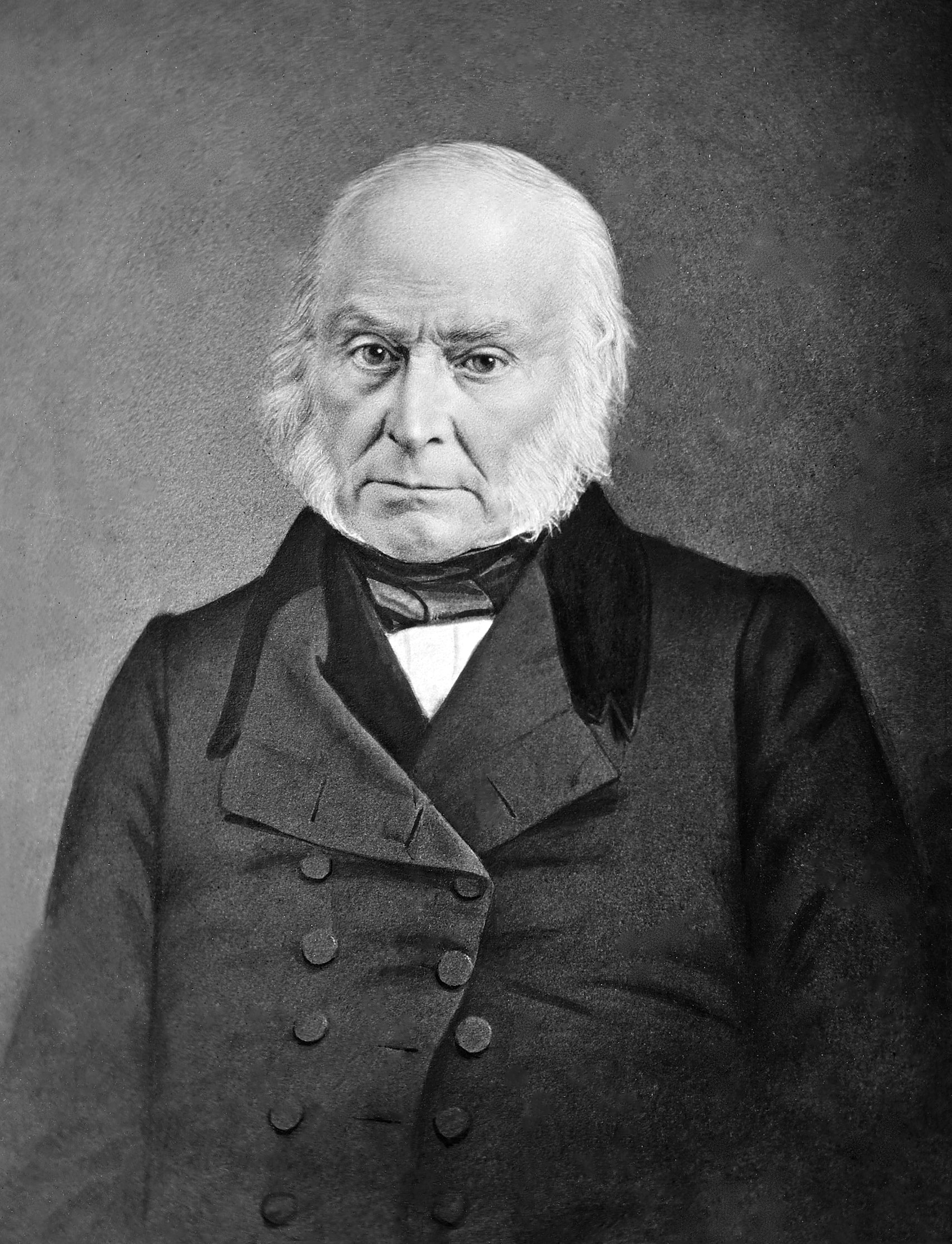John Quincy Adams citáty a výroky
John Quincy Adams: Citáty v angličtine
Newburyport Oration (4 July 1837)
Letter to James Lloyd (1 October 1822)
He here quotes statements made about William Shakespeare by Samuel Johnson, and then one made in reference to Timon by Alexander Pope in Moral Essays.
Oration at Plymouth (1802)
Oration on Lafayette (1834)
As quoted in letter to the citizens of the twelfth congressional district (29 June 1839), The Hingham Patriot, MA. As quoted in Thomas Huges Rare and Early Newspaper catalog, No. 141
Letter to the 12th Congressional District (1839)
Letter to his father, John Adams (1 August 1816), referring to the popular phrase "My Country, Right or Wrong!" based upon Stephen Decatur's famous statement "Our Country! In her intercourse with foreign nations may she always be in the right, but our country, right or wrong." The Latin phrase is one that can be translated as : "Let justice be done though heaven should fall" or "though heaven perish".
Diary entry (1820), as quoted in The Diary of John Quincy Adams (1951), by John Quincy Adams, Scribner's Sons, New York, p. 228-229 http://web.archive.org/web/20130703084250/http://home.nas.com/lopresti/ps6.htm
The Wants of Man, stanza 1, published in The Quincy Patriot (25 September 1841)
Passage on Muhammad by an anonymous author in The American Annual Register for the Years 1827-8-9 (1830), edited by Joseph Blunt, Ch. X, p. 269. Robert Spencerattributed the authorship to Adams in The Politically Incorrect Guide to Islam (and the Crusades) (2005), p. 83, but provided no clear documentation as to why this attribution was made.
Disputed
Letter to an autograph collector (identified: "Washington, 27th April, 1837"), published in The Historical Magazine 4:7 (July 1860), pp. 193-194 https://archive.org/stream/historicalmagaziv4morr#page/194/mode/1up; this became slightly misquoted by John Wingate Thornton in The Pulpit of The American Revolution (1860): "The highest glory of the American Revolution, said John Quincy Adams, was this: it connected, in one indissoluble bond, the principles of civil government with the principles of Christianity".
John Quincy Adams, in The American Annual Register for the Years 1827–8–9 (New-York: E. & G. W. Blunt, 1830), Chapter X, p. 274
“Idleness is sweet, and its consequences are cruel.”
La molesse est doce, et sa suite est cruelle.
Attributed as a diary entry, as quoted in Respectfully Quoted : A Dictionary of Quotations (1992) by Suzy Platt
Diary record of a comment made by Adams to John Marshall, Charles Francis Adams, Memoirs of John Quincy Adams : Comprising Portions of His Diary from 1795 to 1848 (1875), p. 372
Diary entry (30 June 1841)
Independence Day address (1821)
My toast would be, may our country always be successful, but whether successful or otherwise, always right.
Letter to his father, John Adams (1 August 1816), referring to the popular phrase "My Country, Right or Wrong!" based upon Stephen Decatur's famous statement "Our Country! In her intercourse with foreign nations may she always be in the right, but our country, right or wrong." The Latin phrase is one that can be translated as : "Let justice be done though heaven should fall" or "though heaven perish".
